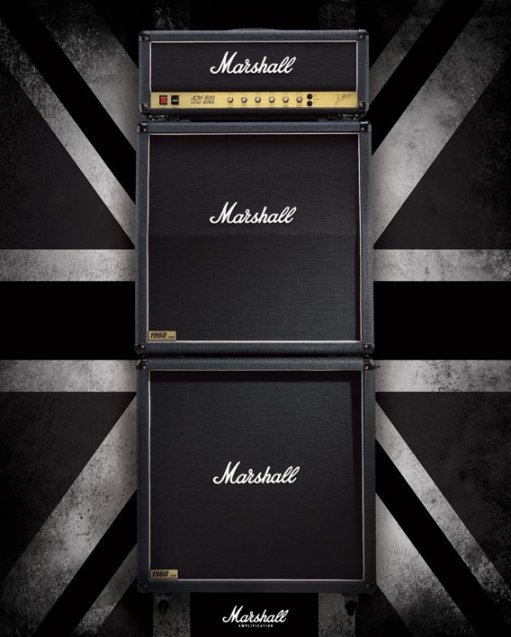The Power of Loud
Image attribution : europosters.ie
I cannot speak to music genres other than rock, jazz and classical. Of the three, rock tends to be generated at higher volume and this is expected by listeners. I may be unusual in that I like more volume in general, in classical and jazz to ensure that I can hear the quietest parts and still get a feeling while the louder parts are less bombastic. In my ancient Hi-Fi system is a DBX Compressor / Dynamic Range Expander that has served me well for decades.
For me, rock music is a different thing. I like it loud, While I am content to play at lower volumes for practice or when recording when the rest of the house is sleeping, for the most part, louder is more better, to adapt a phrase.
There is some science behind this. In the 1933 Harvey Fletcher and Wilden Munson conducted studies that document that at low volumes, humans found midrange to be louder than bass or treble, even when being driven by the same power and speaker systems capable of doing so. They discovered that as volume is increased, the “hearing” of the bass and treble frequencies increased to be even with the midrange. They interpreted the midrange to be between 1000Hz and 5000Hz. As the fundamental frequencies of guitar and bass are below this range, this may be a reason contributing why rock listeners prefer greater volumes. While many articles and podcasts still refer to Fletcher-Munson curves, the actual science is now covered under ISO 226 which includes Fletcher’s and Munson’s analysis within a wider scope.
That range of 1000Hz to 5000Hz is favoured because it is the range where the ear canal and our auditory evolution are most effective. It’s more biology than anything else.
But…
We can also look to psychological, physiological and social reasons why for rock music, louder is seen as better. Because louder volume feels more intense and more immersive, it tends to heighten emotional responses such as excitement, nostalgia and even aggression because the brain is more stimulated. Physiological effects of this brain stimulation include an increase in heart rate, the release of adrenaline and dopamine activation in the brain. These effects enhance the sense of physical pleasure. Due to the science of how we hear, humans also perceive that louder is of higher quality. This is an ongoing challenge for music producers. They want the listeners to feel good, while staying within the acceptable volume limits. Interestingly, louder also overrides lesser quality.
When we attend a show, the volume is expected as part of the norm. This cultural norm is diminishing as more venues are demanding less volume so attendees can spend more time talking and playing with their smartphones. I understand the data factuality of this but wonder why one would attend a show if one is not there to listen. However, that sentiment is likely evidence of my Platinum Curmudgeon certification.
Of course increased volume can also mask environmental noise and that can be a benefit. We should bear in mind that the more we listen at high volumes we also become desensitized to it and then keep turning it up to maintain the same level of emotional impact.
I chose to use an image of a Marshall stack for this article, because it is the picture of loud for my particular generation. Even though big powerful amps are now seen as dinosaurs, I still have more high output amps than lesser ones. As all of my amps, except the Sparks and my acoustic amplifiers are tube based, they can get really loud, much louder than modern Class D amplifiers. As I get older, I have to be more cautious of my hearing as I have lost acuity due to wind noise from motorcycling, concussive damage from shooting and because while I might start the stack at just over one on the dial, by the time I am done, I’ve been turning the volume up. It sounds glorious to be sure, but there is a downside that I must be aware of.
If I go to a rock concert, I now wear ear defenders custom molded to my ear canals. I can still hear the music just fine, but don’t end up with ringing in my ears or headaches. I do not do this for jazz or classical, because the volume is not there.
If you like what I do here for you, please become a supporter on Patreon. Your monthly contribution makes an enormous difference and helps me keep things going. To become a Patreon Patron, just click the link or the button below. Always feel comfortable to send in a question or to post a comment. I read them all and respond as appropriate. Thanks for your support of my work. I’m Ross Chevalier and I look forward to sharing with you again soon.

